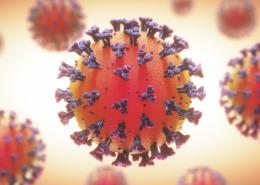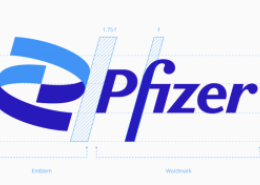AM‐Pharma announces Phase II study results of recAP in sepsis‐associated Acute Kidney Injury
Study shows use of recAP results in greater than 40% relative reduction in mortality
Bunnik, The Netherlands, March 9th 2018. AM‐Pharma B.V., a biopharmaceutical company focused on the development of recombinant human Alkaline Phosphatase (recAP) for inflammatory diseases, today announced positive results from its adaptive Phase II study in 301 sepsis patients with Acute Kidney Injury (AKI), the largest therapeutic study in AKI to date.
Professor Peter Pickkers, MD PhD, Chair of Experimental Intensive Care Medicine, Radboud University Medical Center, and principal investigator of the STOP‐AKI study said: “Acute Kidney Injury affects millions of patients each year and comes with a substantial risk of mortality. The significant improvements demonstrated in survival and kidney function are very encouraging and strongly support further development of recAP.”
The STOP‐AKI study demonstrated a significant and dose‐dependent relative reduction in mortality of more than 40% in the treatment group compared to the placebo group. While the addition of recAP to the standard of care did not affect kidney function in the first week of the study (the primary endpoint), it did show a significant, progressive and sustained improvement in renal function over the 28‐day study period. Throughout the study, safety data were regularly reviewed by an independent Data Safety Monitoring Board (DSMB), without any observations of concern.
The STOP‐AKI data will be presented today by the principle investigator Professor Pickkers at the AKI & CRRT conference in San Diego and at the International Symposium on Intensive Care and Emergency Medicine (ISICEM) on March 21st in Brussels.
Previously, the US Food and Drug Administration granted Fast Track designation to recAP for the treatment of sepsis‐associated acute kidney injury. Acute Kidney Injury involves inflammatory processes in the kidney which can lead to complete loss of renal function and is associated with high mortality rates.
Erik van den Berg, CEO of AM‐Pharma said: “We are delighted with the outcomes of our STOP‐AKI Phase II study. This is a major advance in the development of recAP, which could have a significant impact on patients with Acute Kidney Injury, for whom there is currently no treatment available. We are grateful to the patients, their families and the dedicated medical teams who contributed to this study”.
"Acute Kidney Injury is a common complication of sepsis in ICU patients," said John A. Kellum, MD, Professor and Vice Chair Department of Critical Care Medicine and Director, Center for Critical Care Nephrology at University of Pittsburgh. "These fascinating data from the STOP‐AKI trial show the drug’s potential to prevent patients dying from this serious and devastating condition."
Company contact:
AM‐Pharma
Erik van den Berg (CEO)
+31 30 259 8838
Media contact:
80th Atom
Adam Michael
+44 1223 511338
+44 777 588 1813
Adam@80thAtom.com
Notes to Editors
About AM‐Pharmawww.am‐pharma.com AM‐Pharma is a biopharmaceutical company focused on the development of recAP (recombinant Human Alkaline Phosphatase) for treatment of Acute Kidney Injury (AKI), Ulcerative Colitis (UC), and Hypophosphatasia (HPP). Based on strong results from Phase II trials with bovine Alkaline Phosphatase in AKI and UC, AM‐Pharma has developed an innovative recombinant form of human Alkaline Phosphatase (recAP), and recently completed recruitment of 301 patients in the STOP‐AKI adaptive Phase II trial for sepsis‐associated AKI. In May 2015, AM‐Pharma entered an agreement with Pfizer. Under the terms of the agreement, Pfizer made an upfront payment of $87.5 million for a minority equity interest, and obtained an exclusive option to acquire the Company, with additional potential payments of up to $512.5 million upon option exercise and potential launch of any product that may result from the agreement.
About Acute Kidney Injury
Acute Kidney Injury (AKI) involves inflammatory processes in the kidney which can lead to complete loss of renal function. Hospital‐acquired AKI affects annually around 3 million patients in Europe, the US and Japan, and is associated with mortality in roughly 700,000 patients. It occurs in as many as 4% of hospital admissions and 40% of critical care admissions. Depending on the severity and cause of renal injury, mortality ranges from 10% to as high as 70%. In the US alone, hospitals spend around $10 billion each year on managing this major medical problem. The most important causes of AKI are sepsis, cardiovascular surgery, exposure to nephrotoxic drugs and trauma. AKI patients that require dialysis have the worst prognosis. Currently the only treatment option is dialysis and supportive care. No drugs are approved to treat this condition. Typically, these patients are treated in Intensive Care Units, often with support of nephrologists.2,3,4
About recAP
AM‐Pharma’s therapeutic candidate, recAP (recombinant Alkaline Phosphatase), is a proprietary recombinant human AP constructed from two naturally occurring human isoforms of the AP enzyme, which is highly stable and active.
About STOP‐AKI study
The trial, titled A Safety, Tolerability, Efficacy and QoL Study of Human recAP in the Treatment of Patients With SA‐AKI (STOP‐AKI), is an adaptive Phase II trial consisting of two parts. First, data from 120 patients were evaluated to select the most effective dose of recAP. Second, an additional minimum of 170 patients were recruited into two arms, receiving either the optimal dose of recAP identified initially, or placebo. The study completed recruitment with 301 patients, which makes it the largest interventional clinical study in AKI to date. The study was conducted in more than 50 intensive care units (ICU) in Western Europe and North America. (click here for full details on the protocol)
1 U.S. Food and Drug Administration; available at http://www.fda.gov/ForPatients/Approvals/Fast/ucm405399.htm
2 Murugan R. and Kellum J.A., (2011) Nat Rev Nephrol. Vol 7: 209‐217
3 Heung M. and Chawla L., (2014) Nephron Clin Pract. Vol 127: 30‐34
4 Chertow et al., (2005) J Am Soc Nephrol. Vol 16: 3365‐3370 Soc Nephrol. Vol 16: 3365‐3370
– ENDS -








